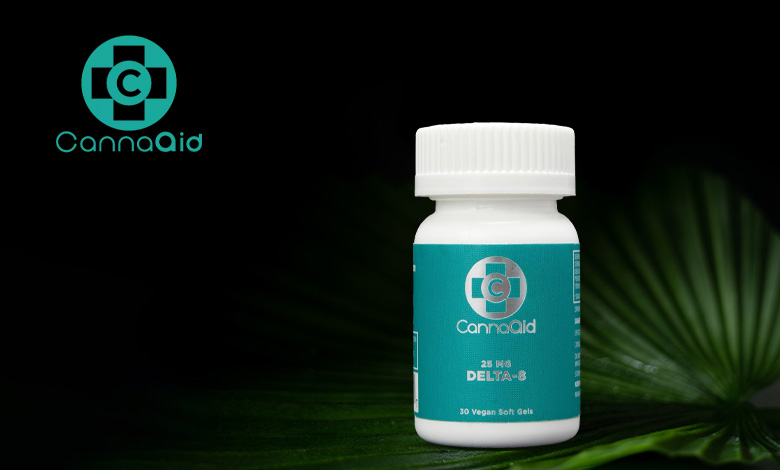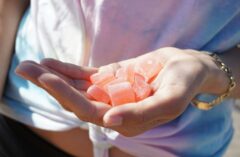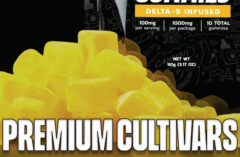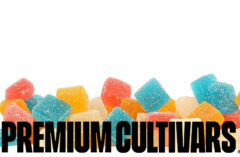Table of Contents
- 1
- 2 Here are five facts you need to be aware of regarding delta-8 THC
- 2.1 Delta-8 THC products haven’t been examined or approved by the FDA for safe use and are marketed in ways that could put people’s health in danger
- 2.2 The FDA has received adverse reaction reports around drugs containing delta-8 THC (Tetrahydrocannabinol).
- 2.3 Delta-8 THC is psychoactive and has intoxicating effects (Tetrahydrocannabinol)
- 2.4 Delta-8 THC products may contain potentially harmful chemicals to make certain THC levels
- 2.5 Delta-8 THC (Tetrahydrocannabinol) must not be placed near pets or children
- 3 Did the FDA inform the Public about Tetrahydrocannabinol?
Last Updated on December 21, 2023 by Team Spinfuel
A psychoactive substance in cannabis sativa plants, including hemp and marijuana, is delta-8 tetrahydrocannabinol. The cannabis plant naturally produces more than 100 cannabinoids, including delta-8 THC, but it is not abundant. Consequently, hemp-derived cannabidiol (CBD) has large amounts of delta-8 THC.

Here are five facts you need to be aware of regarding delta-8 THC
Delta-8 THC products haven’t been examined or approved by the FDA for safe use and are marketed in ways that could put people’s health in danger
The FDA is aware of the increasing concerns regarding delta-8 THC products that are currently available on the internet and in physical stores. The products have not been approved or evaluated by the FDA to be safe in any situation.
There are a variety of concerns, including the variability in formulations of the product and labels, different cannabinoid and Terpene content, as well as variable levels of delta-8 THC. Furthermore, certain products are labeled by the name “hemp products,” which can mislead customers who think “hemp” with “non-psychoactive.
The deceptive advertising of non-proven treatments creates essential health risks to the public as patients, and other customers could use them instead of prescribed medicines for treating severe or fatal illnesses. You can find out more about Delta 8 products, such as Delta 8 capsules, Delta 8 pre-rolls, and many more.
The FDA has received adverse reaction reports around drugs containing delta-8 THC (Tetrahydrocannabinol).
The FDA received the following reports of adverse events for patients who took delta-8 THC supplements from December 1, 2020, until February 28, 2022. From these 104 negative event reports:
- 77% of the patients were adults, 8% were children younger than 18 years old age 15 percent were not able to mention age.
- 55% of patients require intervention (e.g., assessment by emergency medical professionals) or hospitalization.
- 66% reported adverse events when they consumed delta-8 THC-containing food items (e.g., brownies, cakes, Gummies).
The adverse events that occurred included, however, not restricted to vomiting, hallucinations, as well as anxiety, tremors, dizziness, confusion, and loss of consciousness.
Delta-8 THC is psychoactive and has intoxicating effects (Tetrahydrocannabinol)
The delta-8 form of THC produces intoxicating effects like the delta-9 form of THC (i.e., the substance that causes what’s known as the “high” people may experience after using cannabis). In addition, the FDA has been aware of reports in the media of delta-8 THC-based products that can make consumers “high.”
The FDA is worried that delta-8 THC products could expose users to more of the drug than naturally found in raw hemp extracts.
Delta-8 THC products may contain potentially harmful chemicals to make certain THC levels
The quantity of delta-8 THC found in hemp is meager, and additional chemicals are required to convert other cannabinoids found in hemp, including CBD, to delta-8 THC (i.e., synthesized conversion). Some of the concerns associated with this process are:
Some manufacturers may employ potentially hazardous household chemicals to create delta-8 THC in this chemical synthesis procedure. Other chemicals could be used to alter the colors of final products. The outcome of delta-8 THC could contain potentially harmful by-products (contaminants) because of the substances utilized in the process.
Additionally, there is uncertainty about the other pollutants that might be produced or present depending upon the chemical composition used in the raw substance. If inhaled or consumed, these chemicals, such as the ones used to make (synthesize) delta-8 THC, as well as the by-products that are created during the process, can cause harm. You can visit CannaAid Shop to buy high-quality Delta 8 Products.
The production of delta-8 THC-based products could take place in unsanitary or insecure environments, which could cause the production of hazardous contaminants and other dangerous substances.
Delta-8 THC (Tetrahydrocannabinol) must not be placed near pets or children
The manufacturers are packing and marking items in ways that attract youngsters (gummies, chocolates, chocolates, cookies, candy, and more.). As mentioned above, several poison control center warnings involved children exposed to delta-8 THC-containing items. Furthermore, animal poison control centers have observed a significant rise in accidental exposure by pets.
Make sure these items are away from the reach of pets and children.
Did the FDA inform the Public about Tetrahydrocannabinol?
- Several factors have caused the FDA to offer consumers the information they need. The factors that led to this include:
- An increase in adverse-event notifications to the FDA and our poison control facilities across the country.
- Marketing, and especially the online marketing of products that appeals to children.
- Concerns over contamination due to manufacturing methods that can sometimes be used to make delta-8 THC-based products.
The FDA is working closely with state and federal partners to address further issues related to these products and monitor the market for complaints about products or adverse events and other cannabis-derived products that are emerging, and that could be of concern. The FDA will inform consumers of public health and safety issues and take action if needed when FDA-regulated products do not comply with the law.
More in Spinfuel:
CBD Might Cause You to Feel Spaced-Out – A 2023 Update
Navigating the Health Aspects of Delta-8 THC: What You Need to Know
8 Incredible Benefits of CBD to Improve Your Health and Well-Being
Are the Benefits of Full Spectrum CBD Miraculous or a Hoax?
CBD and THC – Why CBD Doesn’t Get You High – A 2023 Perspective








